To adapt to rapid changes of the international and domestic environment, and enhance the quality of senior civil servants, the NACS launched its senior civil service training in 2010. The program is designed based on competencies to develop courses, select trainees, and assess training effectiveness. Through such a practical and theoretic program, we assist trainees to acquire necessary competencies for their target position of promotion.
Goals
To nurture senior civil servants with extraordinary management skills, forward-looking leadership and democratic decision-making knowledge and capabilities, in line with national policies and future development vision, expand their international vision and insights for global development trends, and actively promote civil service matters and enhance national competitiveness.
Trainees
Based on trainees’ target duties, this training is divided into three tracks, i.e. Management Development Training (MDT), Leadership Development Training (LDT) and Strategy Development Training (SDT). Training subjects are focused on civil servants, while some slots are open to people from the industry, and academia at the equivalent seniority level. Around 40 trainees are accepted in the training every year.
Courses
This training is a developmental training based on competencies. It is built with a management competency structure including external behaviors and internal personalities, comprising three aspect, i.e. “values, ethics and personalities”, “common management competency” and “level management competency”. The training includes domestic and overseas courses. Domestic courses are administered in a dispersed way, as trainees are basically required to attend classes every Saturday, and classes on Fridays must be arranged.The total duration of the course is 180 hours.
Features
- Modularized course design: highlight of “Innovative Paradigm in Forward-Looking Leadership”. Based on required competencies for target duties, four modularized courses, i.e. "leadership", "global governance", "public policies", and "ethical values and cultural literacy" are planned.
- Diverse sources of instructors: top-notch experts from the industry, government and academia are invited to be instructors for delivering their insights on current events.
- Innovative teaching methods: to ensure effective adult learning, the teaching activities integrate theories and working practices. This training adopts diverse and interactive approaches to instruct trainees, including mobile learning, systemic thinking workshops, collaborative forums, simulation exercises and mentorship.
- Rigorous assessment mechanism: to strengthen the training effects, we adopt a rigorous assessment mechanism to evaluate trainees’ performance during the training process.
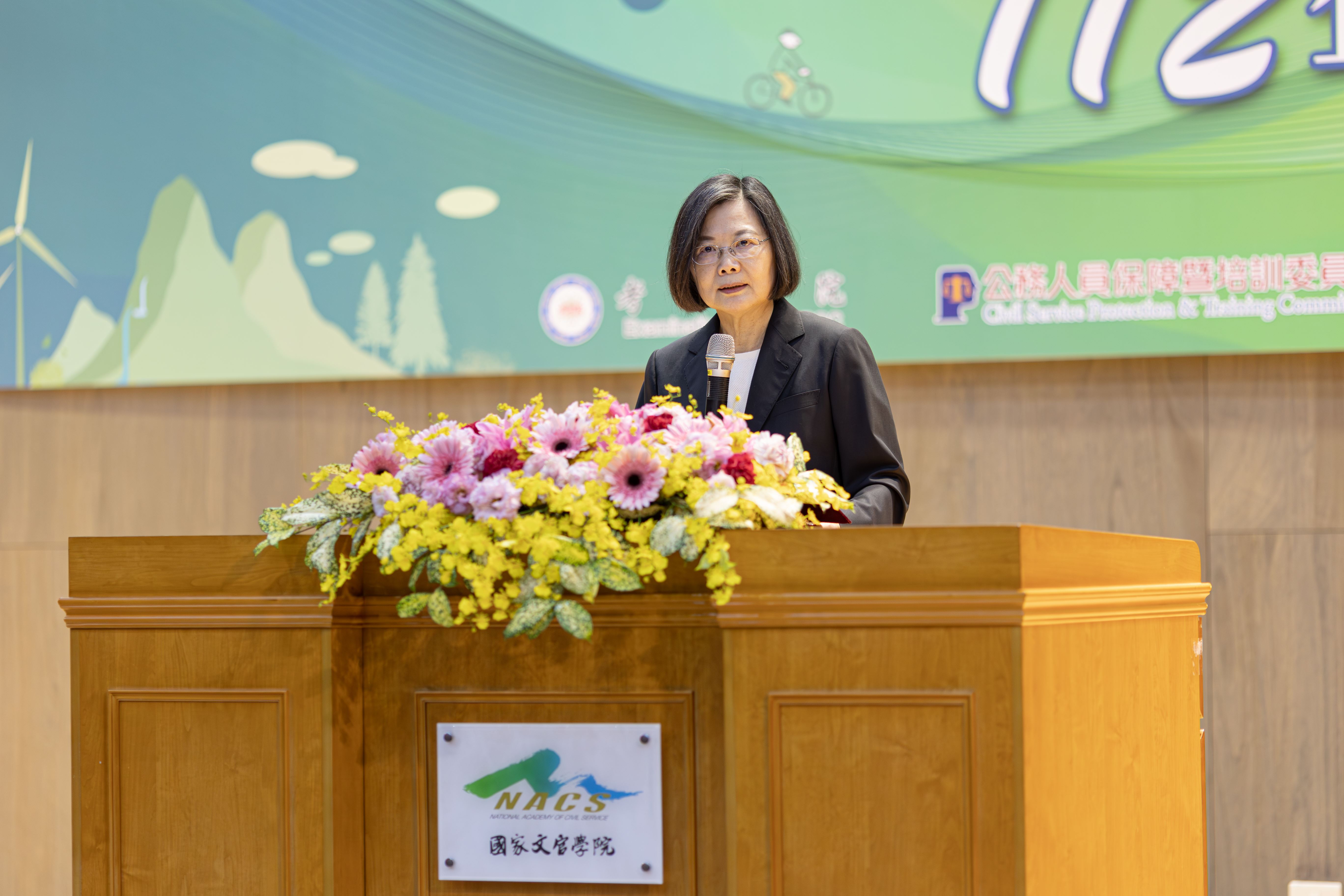 President Tsai Ing-wen delivers remarks at the opening ceremony of 2023 training program President Tsai Ing-wen delivers remarks at the opening ceremony of 2023 training program |
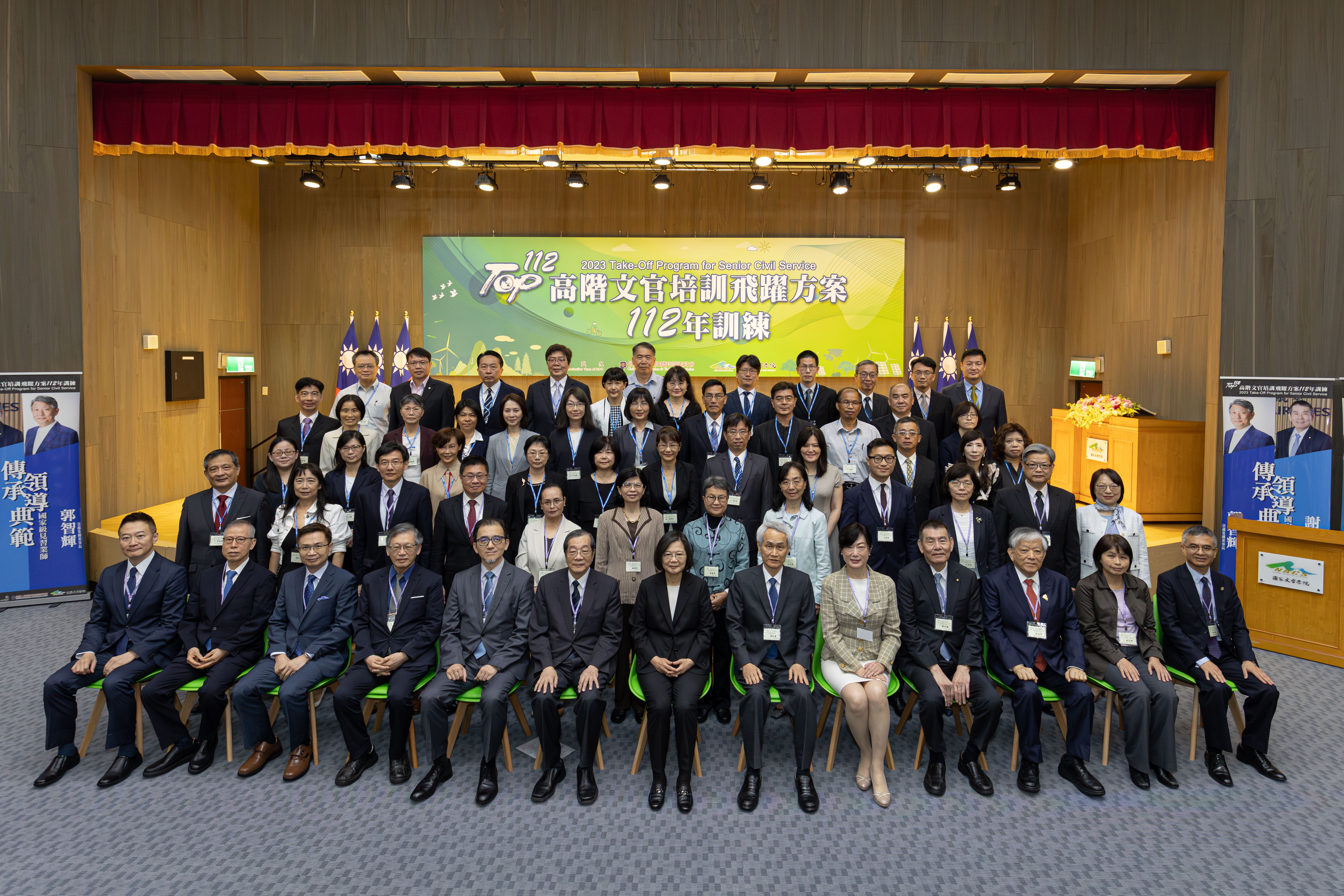 President Tsai joins trainees in a group photo at the opening ceremony of 2023 training program President Tsai joins trainees in a group photo at the opening ceremony of 2023 training program
|
|
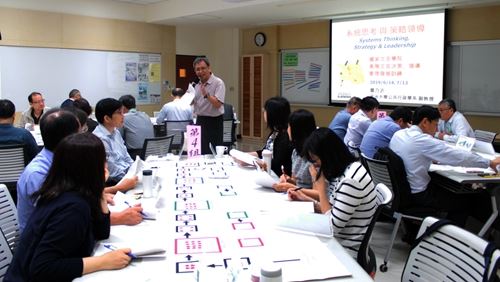
In the course of “systemic thinking and strategic leadership”; trainees are playing the Beer Game.
|
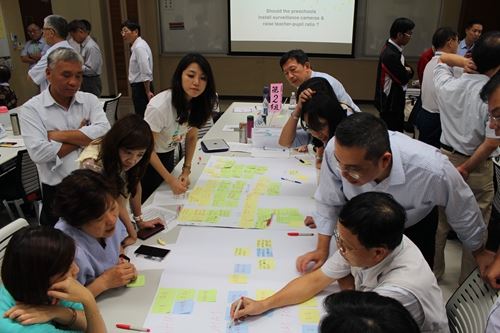
Collaborative seminar for the course of “future of e-government”
|
|
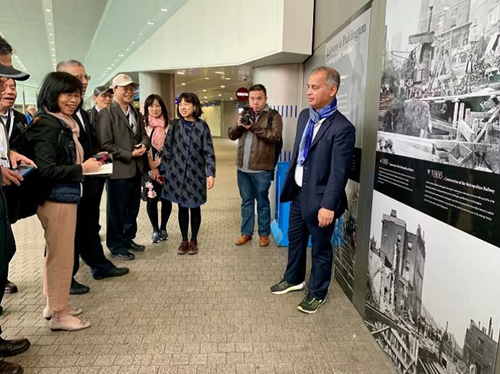
Overseas program
|
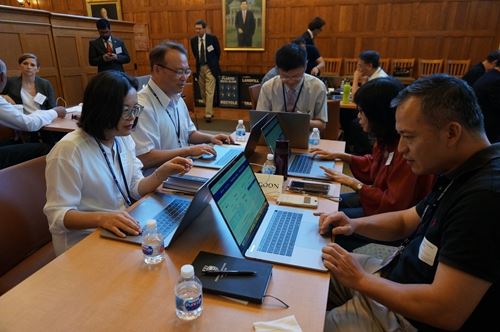
Overseas program
|